Dr. Mark Rosekind: New Podcast Available
· New Podcast with former NASA Scientist Dr. Mark Rosekind
· 'Epidemic' of sleep deprivation spreads among busy Britons
· Veteran sleep tech in the news ‘restoring sweet dreams’
· SESW Conference in Virginia Beach this week
· ASAA NewZzzz
------------------------------------------------------------
New Podcast with Dr. Mark Rosekind
Dr. Mark Rosekind discusses sleep tech fatigue and alertness issues, and his very interesting career as a former NASA sleep specialist. To listen to past guests on the podcasts, go to the archive section of Let's Talk Sleep by Sleepmate Radio.
Archived Podcasts Include Guests:
Mike Bederka
Kellie Scarrow
Graduating Class from somniSchool
Lena Kauffman
Ron Sherman and Sharon Kline
Terry Malloy
Dr. Michael Breus
Patrick Sorenson
Colleen Bazzani
Dave Hargett
Dr. Meir Kryger
Richard Gelula
Dr. Carlos Schenck
Dr. Mark R. Rosekind is the President and Chief Scientist of Alertness Solutions. He is internationally recognized for translating scientific knowledge on sleep, circadian factors, human fatigue, performance, and alertness into practical strategies that improve safety and productivity in our 24-hr society. For over 20 years, Dr. Rosekind’s research, publications, presentations, and practical applications have led to many significant changes in real-world settings. These accomplishments have been recognized through honors and awards that include the NASA Exceptional Service Medal, a Flight Safety Foundation Presidential Citation for “Outstanding Achievement in Safety Leadership,” and a NASA Group Achievement Award. In 1999, Dr. Rosekind was a Fellow at the World Economic Forum in Davos, Switzerland and the recipient of the Business Aviation Meritorious Award presented by the Flight Safety Foundation.
'Epidemic' of sleep deprivation spreads among busy Britons
A news report from London says that where sleep is concerned, most British workers are losing two and a half years of sleep over the course of their career.
Veteran Sleep Tech in the News ‘Restoring Sweet Dreams’
Longtime sleep technologist Tish (Galloway) Pitcherello, RPSGT of St. Francis Medical Center Sleep Center in Trenton, New Jersey is featured in a Trenton Times article titled “Restoring sweet dreams” The article is a public-oriented feature story about sleep disorders and the services provided at St. Francis. Tish said in the article that when she deals with pediatric patients, sometimes she puts electrodes on teddy bears and dolls to help her young patients feel less anxious about the sleep study. Also included in the article is Dr. Marc M. Seelagy, board- certified sleep physician and medical director of St. Francis's program
BA flight is delayed for 13hrs so pilot can sleep
Passengers on a British Airways (BA) flight from New Delhi to London recently faced a 13-hour delay - because the pilot felt he was too sleepy after a noisy night in a New Delhi hotel.
Angry passengers were offloaded from the plane after the pilot refused to fly until he caught up with his sleep.
"The crew had not had enough rest ... the entire crew had a disturbed night," said Radhika Raikhy, spokeswoman for BA. She said the airline's safety rules do not allow its crew to operate in such conditions. advertisement
It was reported the flight and cabin crew complained of not getting enough rest because their hotel was too noisy. The flight, BA 142, finally took off 13 hours later, to the fury of passengers who were sent to city hotels to wait out the delay as the crew rested. One passenger, Sunil Thapar, said: "It was very chaotic. Due to a shortage of rooms, some people, including me, had to share rooms with strangers."
Southeast/Southwest Regional Association of Polysomnographic Technologists (SESW RAPT) 25th Annual Meeting This Week:
SESW RAPT 2007, Virginia Beach, VA, USA, May 3-7
25th Annual Meeting. Sheraton Oceanfront "Mr. Sandman Bring Me A Dream"See the 2007 Meeting page for more info.
New England Polysomnographic Society (NEPS) 5th Annual Meeting August 23 - 24, 2007. Portsmouth, NH at the Frank Jones Center, 400 Us Highway 1 Bypass, 03801. For more information, visit the NEPS Web site or email: info@nepolysomnographic.org . An online registration will soon be available, and information posted on the Let’s Talk Sleep blog.
2007 BSS 19th Annual Scientific Meeting, Cambridge, UK, Sep. 23-25
Japanese Film Festival: The Bad Sleep Well
Visit The Stanford Daily for a review by Marco Hernandez on the film featured by the Japanese Film Festival titled The Bad Sleep Well. Hernandez recommends that it is “definitely not a film that puts viewers to sleep.”

NAPS Abstract of the Week
Does sleep quality predict pain-related disability in chronic pain patients? The mediating roles of depression and pain severity.
Pain 2007;127(3):243-52. Department of Psychology, University of Bath, BA2 7AY, UK. fmen2@medschl.cam.ac.uk
Abstract
Disrupted sleep has long been associated with physical functioning and disability in chronic pain populations and recent research shows that patterns of sleep and rest can predict physical disability, independent of depression and pain levels in this group. However, it is unknown whether sleep quality may independently predict disability in this way. The aim of the present study was to examine the self-reported relationship between sleep and disability in 155 chronic pain patients attending a pain management service. The sample had an average age of 52.9 years and 69% were female with mean pain duration of 10.5 years. Disrupted sleep and rest patterns and poor sleep quality were positively correlated with depression and pain-related disability. Hierarchical regression analyses showed that sleep quality did not predict pain-related disability when depression and pain severity were taken into consideration. Separate mediation analyses of depression and pain severity revealed that both variables were important partial mediators of the relationship between sleep quality and disability. Depression was found to be a stronger mediator than pain severity. These findings highlight the important role of sleep in chronic pain suffering. However, due to the cross sectional nature of this study, the mediation pathways proposed require testing by further research adopting a prospective design. Ideally, future research should evaluate whether targeted interventions to improve sleep can reduce pain severity, depression and ultimately, pain-related disability.
ASAA NewZzzz
The American Sleep Apnea Association (ASAA) has had a recent flurry of activity, according to ASAA Executive Director Edward Grandi. The ASAA recently launched the Apnea Advocacy
 Action Program. This is a grassroots advocacy program for apnea patients and their families. Since announcing the first call to action on March 15 – securing additional funding for the Centers for Disease Control (CDC) for data collection on sleep and sleep disorders – 126 messages were sent to Congress through ASAA, and the organization has 24 subscribers who are interested in helping on the next important issue. You can access the Legislative Action Center from www.sleepapnea.org/advocacy. I would encourage you to let others in your sleep center know about this important resource.
Action Program. This is a grassroots advocacy program for apnea patients and their families. Since announcing the first call to action on March 15 – securing additional funding for the Centers for Disease Control (CDC) for data collection on sleep and sleep disorders – 126 messages were sent to Congress through ASAA, and the organization has 24 subscribers who are interested in helping on the next important issue. You can access the Legislative Action Center from www.sleepapnea.org/advocacy. I would encourage you to let others in your sleep center know about this important resource.Mr. Grandi wrote an article for the May issue of Future Healthcare , about the role of patient
education and support for improved CPAP therapy adherence in the treatment of obstructive sleep apnea.
Mr. Grandi recently met with Dr. Nancy Collop the director of Sleep Disorder Center at Johns Hopkins University (JHU) about ASAA developing a disease management program for sleep apnea. JHU has well established disease management program for other respiratory disorders.
Finally, the Indigent Patient Program, renamed CPAP Assistance Program (CAP) was formally to our A.W.A.K.E. coordinators announced in April. The initial response was very favorable. We are in the process of finalizing the guidelines for participation in the program. The first group of machines likely to be shipped by mid-May.

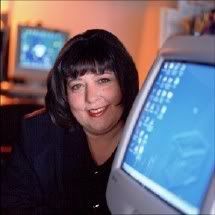
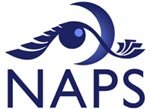
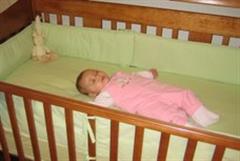
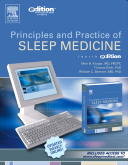

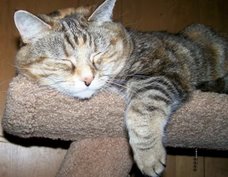

No comments:
Post a Comment